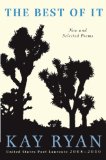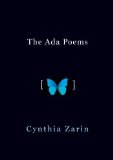Summary | Excerpt | Reviews | Beyond the book | Read-Alikes | Genres & Themes | Author Bio

The Best Poems of Tomas Tranströmer
by Tomas Transtromer"Accessible" is sometimes considered a dirty word in the realm of poetry. While poets generally seek to communicate with readers rather than confuse them, poetry that finds a wide audience risks being perceived as bland and watered down, made palatable for the masses. How then, can a poet share his or her vision as clearly as possible while still retaining the mysterious, elusive quality that bypasses the logic of prose and that rewards repeated reading and reflection? Swedish Nobel Laureate in Poetry Tomas Tranströmer exemplifies this paradox in his crystalline juxtapositions of vivid images, straightforward language, and daring imaginative leaps that unite disparate elements.
When Tranströmer won the Nobel Prize in October 2011, he had been writing and publishing for over half a century. His work has displayed a remarkable consistency throughout the past sixty years, not because he has failed to evolve but because the poems that he wrote as a young man in the 1950s and 60s reveal a maturity and self-confidence that have only increased with time. Tranströmer's early work doesn't read like a trial run for later greatness or an attempt to find a distinctive voice; the grace, the self-effacing humor, and the attentiveness to the world around him are already formed and ripe for refinement. For instance, take "Allegro", an early poem that finds the speaker turning to the composer Haydn's music for solace:
I raise my haydnflag. The signal is:
"We do not surrender. But want peace."
The music is a house of glass standing on a slope;
rocks are flying, rocks are rolling.
The rocks roll straight through the house
but every pane of glass is still whole.
In 1996, Tranströmer echoed these themes and techniques (the power of music, the startling metaphors, the humorous and daring wordplay of "haydnflag") in the longer poem "Grief Gondola #2", a meditation on the relationship between two titans of classical music, Richard Wagner and his father-in-law, Franz Liszt. Here Wagner's "face is a white flag" and "Liszt has composed a few chords so heavy one should send / them / off to the Institute for Mineralogical Studies in Padua". The unique playfulness from "Allegro" is firmly on display here. However, in contrast with his earlier, cheerful image of music as a shatter-proof glass house, Tranströmer now compares life to a "heavily loaded gondola", so that the central image of this poem is a much darker one fraught with the implications of mortality. Indeed, the poet is aging, and in 1990, he suffered a stroke that left him partially paralyzed, so his more recent poems naturally address these kinds of weighty concerns.
The darkness that permeates Tranströmer's poems almost always exists in tandem with light, giving his work a buoyancy that prevents it from ever becoming depressing. An astute observer of the natural world, he is keenly interested in revealing nature to us in bold new guises. The title poem of this collection contains the lovely line "The lake is a window into the earth" while in "Street Crossing", we learn that "Far under the traffic, deep in earth, / the unborn forest waits, still, for a thousand years".
Worlds are always bumping up against each other in these poems, literally: "It's not a sheltered world. The noise begins over there, on the / other side of the wall... / The ears experience a buzz, perhaps it's depth or perhaps / height. / It's the pressure from the other side of the wall..." ("Vermeer"). A clearing in the woods reveals itself only to "those who have gotten lost" ("The Clearing") and two cities, "one of them utterly dark, where enemies live" and the other shining with lamps, face each other across a body of water ("Two Cities"). This mirroring effect and its attendant dream-like sensation imbues Tranströmer's work with a surrealism that always comes across as fresh and never merely decorative or odd for oddness' sake.
Perhaps Tranströmer's greatest strength as a poet, though, is his ability to maintain a singular voice while understanding when to get out of the way and simply let the poem do its invisible work. He beautifully encapsulates this at the conclusion of "Morning Bird Songs":
Fantastic to feel how my poem is growing
while I myself am shrinking.
It's getting bigger, it's taking my place,
it's pressing against me.
It has shoved me out of the nest.
The poem is finished.
In an era defined by its emphasis on the self (reality TV, social networking, cell phone conversations in public spaces), it is comforting to read the words of a poet who values the work itself above any attendant cult of personality. I like to think that the Nobel Academy recognized this when they chose Tranströmer and his enigmatic yet approachable oeuvre for the Nobel Prize.
![]() This review
first ran in the November 17, 2011
issue of BookBrowse Recommends.
This review
first ran in the November 17, 2011
issue of BookBrowse Recommends.

If you liked The Half-Finished Heaven, try these:

by Kay Ryan
Published 2011
A major event in American poetry: The poet’s own selection of more than two hundred poems, offering both longtime followers and new readers a stunning retrospective of her earlier work as well as a generous selection of powerful new poems.

by Cynthia Zarin
Published 2010
A dazzling story of obsessive love emerges in Cynthia Zarin's luminous new book inspired and inhabited by the title character of Nabokov’s novel Ada, or Ardor: A Family Chronicle, who was the lifelong love of her half brother, Van.
Your guide toexceptional books
BookBrowse seeks out and recommends the best in contemporary fiction and nonfiction—books that not only engage and entertain but also deepen our understanding of ourselves and the world around us.